David Kessler – David Kessler on Healing Grief & Loss
$149.00 Original price was: $149.00.$44.00Current price is: $44.00.
Digital Download: You will receive a download link via your order email
Should you have any questions, please contact us: [email protected]
 David Kessler – David Kessler on Healing Grief & Loss
David Kessler – David Kessler on Healing Grief & Loss
As a trained therapist, you’re likely familiar with the pivotal work of Swiss-American psychiatrist Elisabeth Kübler-Ross and her model of the 5 stages of dying.
Elisabeth knew they were being misinterpreted. So, she recruited her friend David Kessler to co-author a book adapting her stages of dying to stages of grief. The result was the classic book, On Grief and Grieving.
The profound effect of the 5 Stages of Grief cannot be overstated. It has been instrumental in helping therapists around the world help their clients through grief. They give a reassuring structure to the unknown terrain of grief.
However, the “stages model” has created some misuse and simplification that Elisabeth never intended…
Such as the expectation that these stages are linear…
That people in grief move smoothly and simply from one stage to the next on a neat little timeline, with no overlap or backtracking.
The truth is, people in grief cannot—and should not—be classified by stage. Nor should we expect them to be further along in their grief than they are.
Grief just doesn’t work that way.
Elisabeth and David stressed that grief is highly personal. It’s messy. It defies logic and timelines and deadlines.
And yet, people still say well-meaning, hurtful things like, “It’s been a year, shouldn’t you be over him by now?”
Tone-deaf comments like these happen ALL the time because as a society, we don’t know how to talk about death. People are so uncomfortable with it they try to skip over it, and get others to do the same.
Fortunately, world-renowned grief and loss expert David Kessler, who worked by her side, has pioneered new methods and tools to help you better understand the art and science of caring for the grieving…
So you can help your clients create a healthy grieving process.
David Kessler is one of the world’s foremost experts on healing and loss. He’s written five bestselling books on the subject. He’s also co-authored two bestsellers with the legendary Elisabeth Kübler-Ross: On Grief & Grieving and Life Lessons.
He’s worked with Elizabeth Taylor, Jamie Lee Curtis, and Carrie Fisher after their loved ones died. He’s worked with survivors of 9/11 and the Las Vegas shooting in 2017, and with the parents of Sandy Hook Elementary school students.
There are few people better qualified to teach these innovative counseling methods than David Kessler.
Discover Cutting-Edge Guidelines of Grief Treatment
These new approaches have evolved the 5 Stages Model, as well as other models, and are designed to help you meet your clients where they are in the grieving process—without classifying them or putting them on a timeline.
They give you the tools and language to talk with your clients about grief and grieving in deeper, more meaningful ways…
So your clients can feel free of internal judgment and shame, thinking they should be “grieving better” than they are because they’re making others uncomfortable.
In David Kessler on Healing Grief and Loss, you’ll explore:
- The dynamics of different types of grief and the healing processes associated with each
- Age-appropriate grieving milestones that occur across the lifespan
- The somatic responses to grief, and how to identify and manage residual grief in the body
- Why children are often the “forgotten grievers,” and strategies that can help this population
- The effectiveness of positive psychology interventions in treating grief
- The relationship between traumatic events and grief as it relates to the healing process
- And SO much more!
To give you a comprehensive overview of these treatments methods and guidelines, David Kessler takes you through 13 unique and fascinating modules:
- Delayed
- Disenfranchised
- Ambiguous
- Inconclusive
- Complicated
- Average response
- Resilience
- How we often re-traumatize ourselves in grief
- Discover the difference between releasing grief and replaying traumatic events
- How vicarious trauma can affect the clinician
- Understand how positive psychology can be used in healing grief
- Understand why clients may treat themselves harshly in grief
- Discover new ways to decrease suffering after a loss
- Discover treatment strategies that work
- Learn how to use certain tools to help normalize anticipatory grief for your clients
- Instead of asking, “How are you?” ask this question instead…
- Review of the 5 stages
- Explore the 6th stage of death and grieving
- Recognize distinctions between depressive grief and clinical depression
- Discover how the emotion of relief has its place in the grieving process
- The cultural meaning of angels in society as well as in death and dying
- How Christian interpretations of the afterlife can influence your clients
- How to handle clients who may be “haunted” by their loved ones
- What are “deathbed visions” and how they differ from hallucinations
- How the law validates the visions and declarations of the dying
- Explore alternatives to forgiveness
- Understand when forgiveness works and why it doesn’t
- Discover techniques your clients can use to truly find forgiveness
- How to handle ALL the holidays, not just Thanksgiving and Christmas
- What to do when anniversaries of diagnosis, death, first wedding anniversary after death, etc. arise
- How to handle other milestones, like birthdays
- How your clients can renew their intimate lives after loss
- Helping your clients find “closure”
- Discover the best—and worst—things to say to someone in grief
- How to avoid putting your clients on a timeline of grief
- Discover tools for preparing children for loss
- How to help kids participate in rituals of death and mourning
- Understand normal grieving behavior in children
- Learn why pet loss is just as significant as other losses
- Understand why clients may not reveal loss of a pet
- Discover new ways to help with feelings of exaggerated responsibility
- Discover how to take care of yourself when you’re surrounded by loss
- Understand why clinicians sometimes over-identify with clients
- How to determine when it’s helpful to disclose your own personal losses
- Simplifying the model for greater understanding
- How complicated grief differs from uncomplicated grief
- How things like multiple losses, sudden death, Alzheimer’s disease, and other factors can complicate grief—and how to help your clients manage them
- Understand how grief of suicide is different
- Discover techniques for releasing feelings of responsibility
- Tools for healing grief after a suicide
Meet the Course Expert:
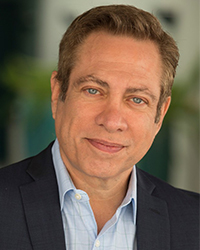
David Kessler is one of the world’s foremost experts on healing and loss. His experience with thousands of people on the edge of life and death has taught him the secrets to living a happy and fulfilled life.
An accomplished speaker and author, David’s book, Finding Meaning: The Sixth Stage of Grief, released in November 2019 and has already been named one of the top 10 books for the fall by Publishers Weekly. His previous books have been praised by Saint (Mother) Teresa and Elisabeth Kübler Ross.
David has written five bestselling books and the popular Healing Grief Card Deck: 55 Practices to Find Peace. His first book, The Needs of the Dying, is a #1 best-selling end-of-life book.
He co-authored two bestsellers with the legendary Elisabeth Kübler-Ross: On Grief and Grieving and Life Lessons. He also co-authored You Can Heal Your Heart: Finding Peace After Breakup, Divorce or Death, with Louise Hay.
David has worked with Elizabeth Taylor, Jamie Lee Curtis, and Carrie Fisher after their loved ones died, as well as late actors Anthony Perkins and Michael Landon at the end of their lives. He serves as a Specialist Reserve Officer with the Los Angeles Police Department and as a volunteer for the American Red Cross, responding to tragic events including aviation disasters and 9/11.
In addition, he has met with parents of Sandy Hook Elementary and survivors of the Las Vegas shooting in 2017. He also serves on the board of the Farrah Fawcett Foundation, a non-profit organization that provides funding for cancer research. David’s work has been discussed in the New York Times, Los Angeles Times, Business Week and Life Magazine, and has been featured on CNN, NBC, Fox, PBS, Dr. Oz and Entertainment Tonight.
David earned a master’s degree in healthcare bioethics from Loyola Marymount University after completing his undergraduate work at the University of Southern California. He is a member of the American College of Healthcare Executives and is a certified AMA/EPEC (Education for Physicians) trainer. David is the founder of Grief.com, an invaluable resource to those who are grieving that has had over 5 million visitors.
When he’s not speaking around the world, David calls Los Angeles home. Despite having spent most of his life teaching physicians, nurses, counselors, police officers and first responders about the end of life, trauma and grief, nothing could prepare him for the sudden death of his 21-year-old son in 2016. David’s work continues in honor of him.
There are few people better qualified to teach these pioneering counseling methods on grief and grieving than David Kessler.
Speaker Disclosures:
Financial: David Kessler is president of David Kessler, Inc. He is an author for Simon & Schuster – New York and receives royalties. Mr. Kessler receives a speaking honorarium from PESI, Inc.
Non-financial: David Kessler has no relevant non-financial relationship to disclose.
Sale Page: https://catalog.pesi.com/sales/bh_c_001343_kesslerhealinggrief_organic-92060
Archive: https://archive.fo/1e1Gf
Delivery Method
Be the first to review “David Kessler – David Kessler on Healing Grief & Loss” Cancel reply
Related Products
Medical & Health
Personal Development
[Download Now] David Kessler On Grief and Grieving – David Kessler
Medical & Health
Medical & Health
Medical & Health
David Kessler – Grieving and Remembering Well: Tools for Healing
Medical & Health
Psychology & Body Language
David Kessler – The Sixth Stage of Grief Helping Clients & Patients Find Meaning after Loss

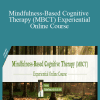
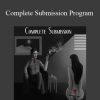
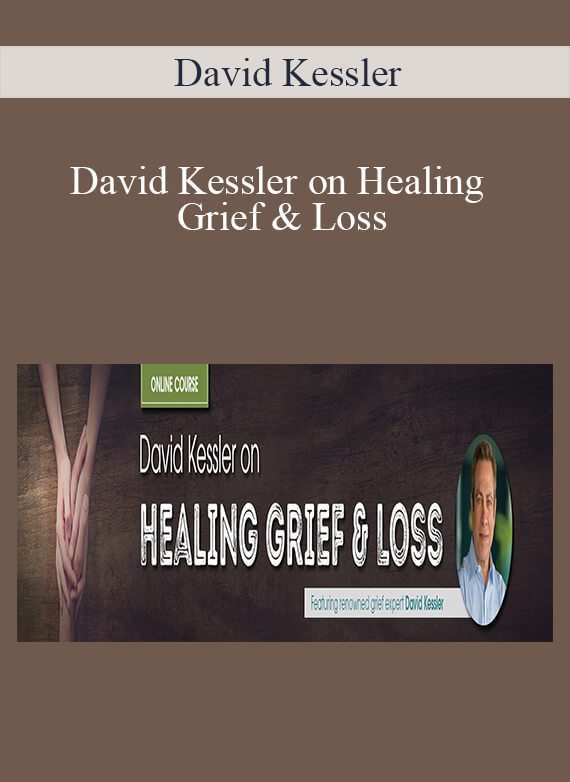
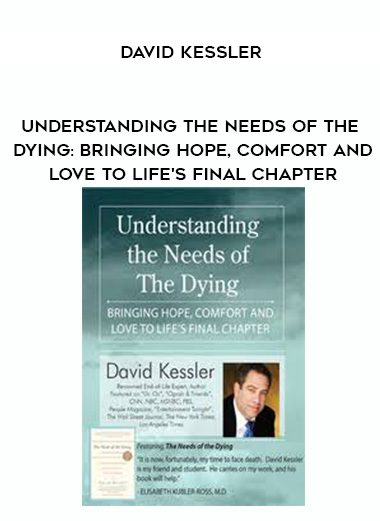
![[Download Now] David Kessler On Grief and Grieving – David Kessler](https://imc.sale/wp-content/uploads/2022/02/David-Kessler-On-Grief-and-Grieving-–-David-Kessler.jpg)
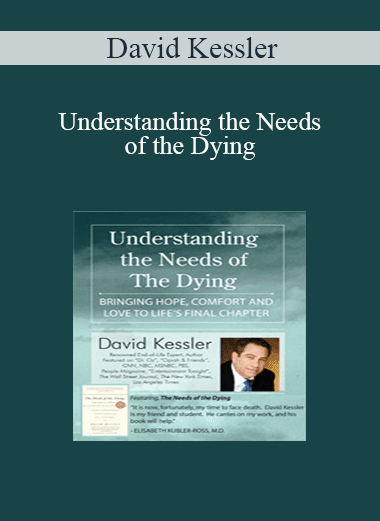
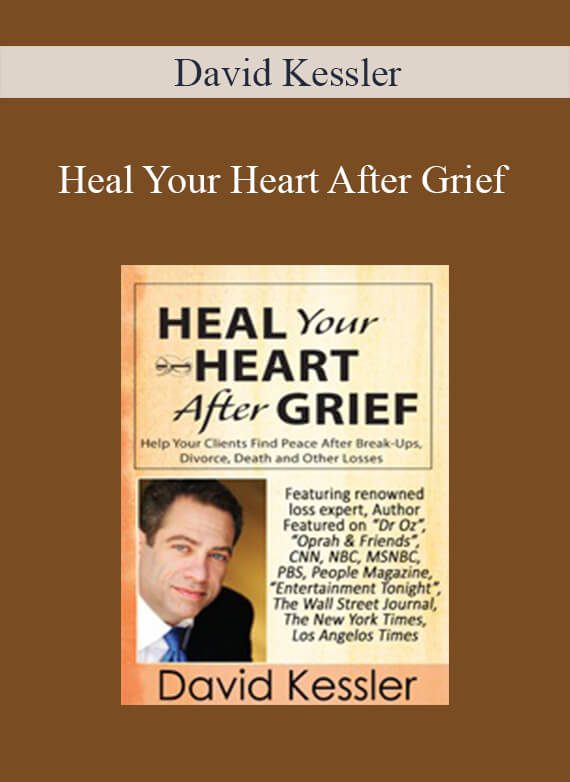
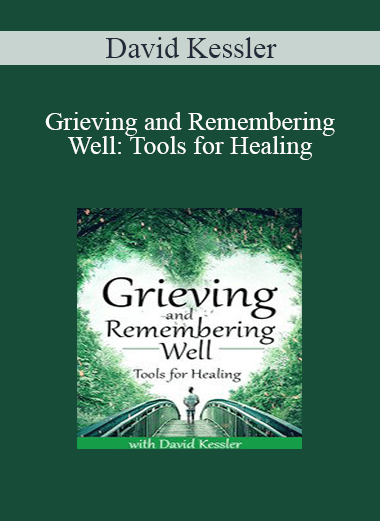
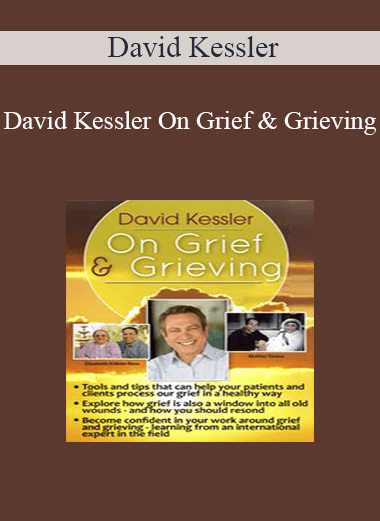
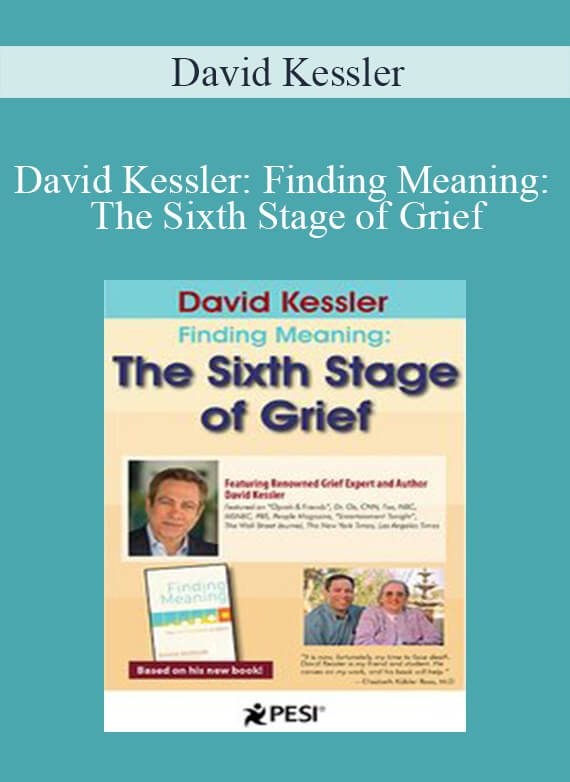
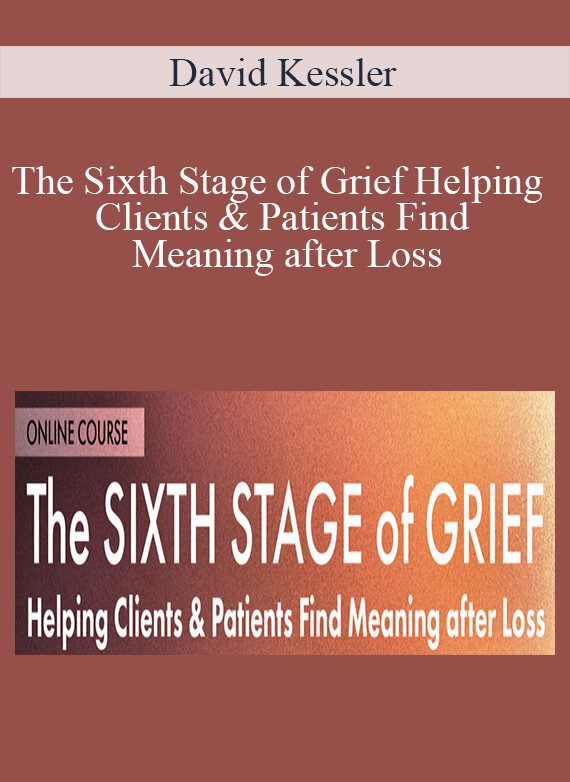
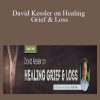
Reviews
There are no reviews yet.